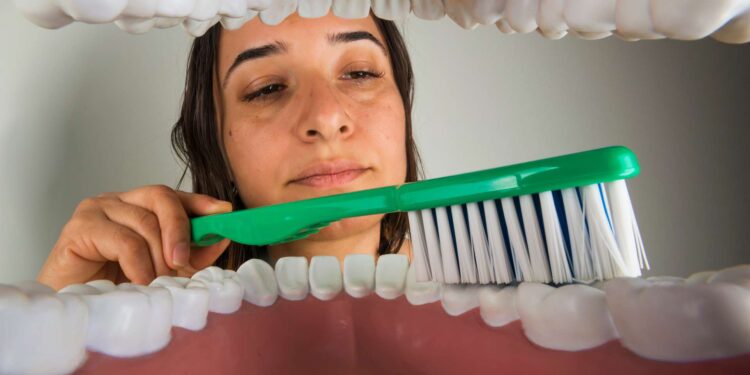Hospital-acquired (or nosocomial) pneumonia is the most serious and common healthcare-associated infection, but available data on prevention strategies are limited. Two American epidemiologists wondered whether daily tooth brushing in hospitalized patients was associated with effective prevention against nosocomial pneumonia.
This will also interest you
(ON VIDEO) A hippopotamus lets his teeth be brushed, in Japan The hippopotamus is seen as a powerful and sometimes aggressive animal. However, it often leaves in…
While hospitals try to limit the spread of pathogens, 5 to 10% of hospitalized patients contract an infection (called “nosocomial”) during their stay. A meta-analysis of 15 clinical trials finds that something as simple as brushing your teeth could make a big difference in preventionprevention against nosocomial infections.
Brushing the teeth of ventilated patients
The research published in JAMA Internal Medicine associates daily tooth brushing (at least twice a day) of hospitalized patients with a lower rate of nosocomial pneumonia compared to rinsing the mouth with antiseptics or physiological serumphysiological serum. This result concerns patients on respiratory assistance, who had their teeth brushed by staff. No significant effect was found in the other patients, which could be explained by the fact that the vast majority of the more than 2,700 patients in the study benefited from respiratory assistance. The authors note that hospital-acquired pneumonia without ventilationventilation still concerns one hospitalization in 200.
Tooth brushing was also associated with a reduction in ventilation time required, durationduration shorter stay in the intensive care unit and lower mortality in the same unit, compared to the use ofantibioticsantibiotics.
According to Rupak Datta, a hospital epidemiologist who was not involved in the research, “ The analysis presents compelling data that reinforces the idea that routine toothbrushing is an essential part of standard care for ventilated patients. »



